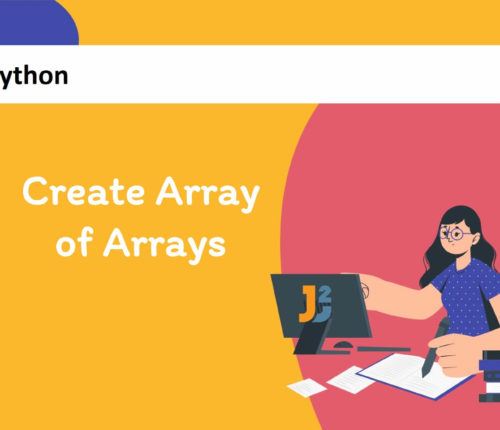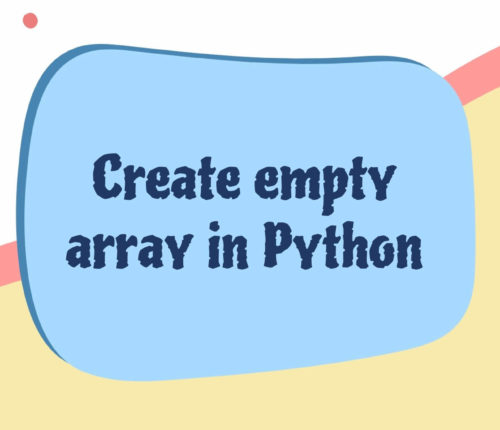Python Array


 04 May
04 MayCount Unique Values in NumPy Array
1. Introduction One of the common tasks Numpy Users may encounter is count unique values in Numpy Array that can help in exploring the distribution of Nummy Array. In this article, we will see different ways to count unique values in Numpy Array. 2. Using np.unique() Method with len() Method Use np.unique() method with len() […]
 04 May
04 MayCreate Array of Arrays in Python
Use numpy.array() Function To create an array of the arrays in Python: Use the np.array() function to create a numpy.ndarray type array of the arrays. [crayon-69923cfb44d9f152319808/] [crayon-69923cfb44da7474724447/] The Python library NumPy scientifically computes advanced numerical work. It is a language extension that adds support for large, multi-dimensional arrays and matrices in the Python language. The […]
 13 March
13 MarchCreate Empty Array in Python
Creating an Empty Array in Python Before moving towards various solutions for creating an empty array in Python, we must understand what an empty array means. It means a collection of items with a particular data type containing no items or elements. We can use different ways to create an empty one-dimensional, two-dimensional and multi-dimensional […]
 27 December
27 DecemberCreate Array of All NaN Values in Python
Using numpy.empty() Function To create an array of all NaN values in Python: Use numpy.empty() to get an array of the given shape. Assign numpy.nan to every array element using the assignment operator (=). [crayon-69923cfb45323146319447/] [crayon-69923cfb4532a779049423/] We used numpy.empty() to get an array of the given shape and dtype. Here, shape means the number of […]
 25 December
25 DecemberConvert String Array to Int Array in Python
This tutorial will demonstrate how to convert string array to int array in Python. Using the for loop with int() function To convert string array to int array in Python: Use the for loop to loop through the array. Use the int() function to convert each element to an integer in every iteration. See the […]
 27 June
27 JuneFill Array with Random Numbers in Python
Fill array with random numbers in Python An array is one of the fundamental data structures in Python. It stores elements in a contiguous memory location and each element can be accessed using its respective index. In Python, the numpy library is used to implement array data structures. Lists are also another data structure that […]
 17 May
17 MayAdd Month to datetime in Python
In Python, we can represent date values using the standard datetime library. We can store all the attributes of the date along with time attributes in datetime objects. The datetime objects can be manipulated with other libraries also like dateutil, pandas, and more. We cannot directly add or subtract datetime objects and use the datetime.timedelta […]
 03 May
03 MayCreate an Array of 1 to 10 in Python
In this article, we will see how to create an array of 1 to 10 in Python. Introduction Arrays are an essential part of any programming language and are widely used by programmers in every field of coding. Python seems to have a different approach related to the use of arrays, as it does not […]
 30 December
30 DecemberHow to Append to Array in Python
In python, we have three implementations of the array data structure. In this article, we will discuss those array implementations. After that, see how we can append elements to the different array implementations in python. What are the Different Array Implementations in Python? We can implement arrays using three different approaches namely lists, array module, […]



